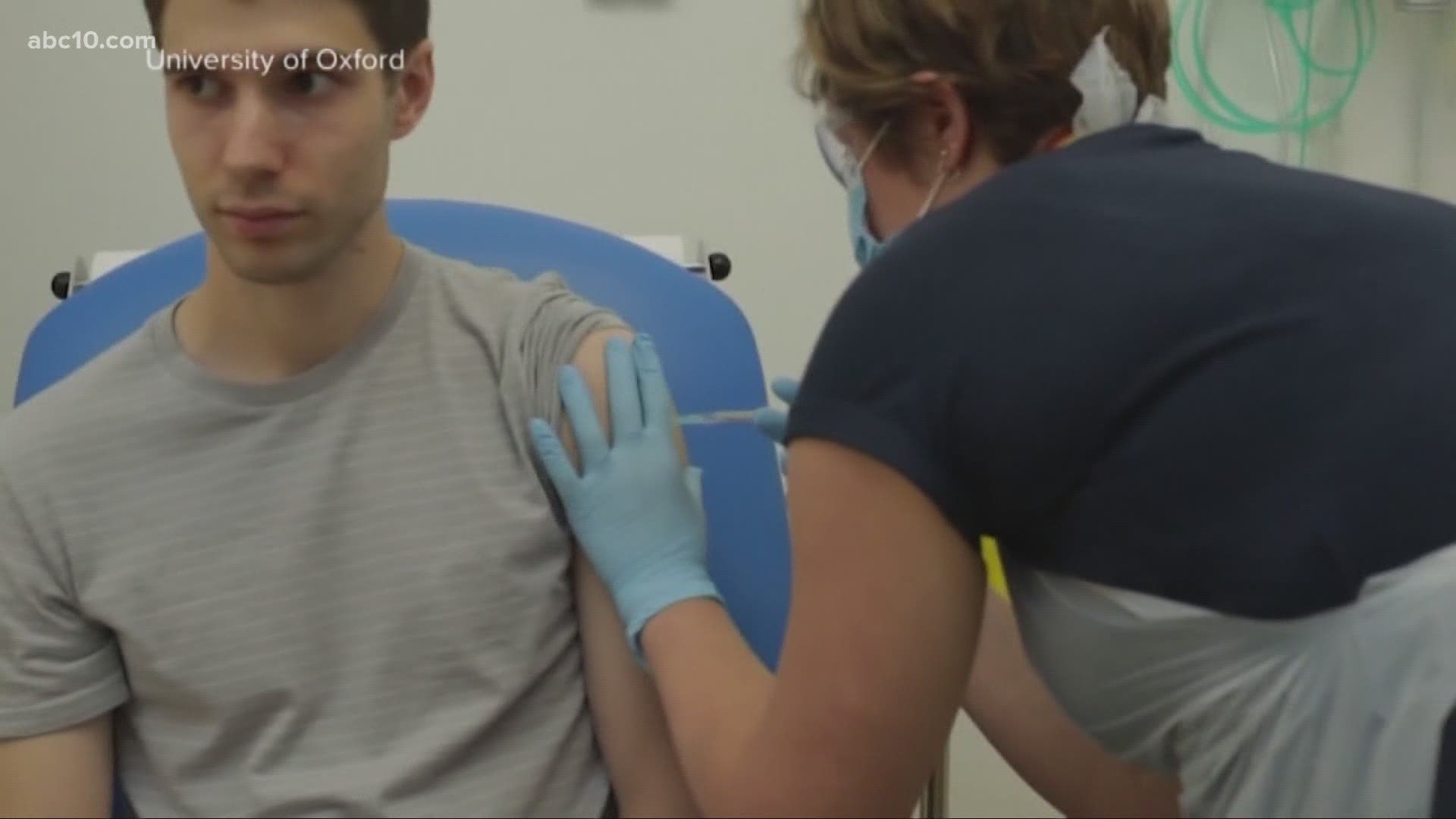CALIFORNIA, USA — As non-study participants start getting vaccinated against COVID-19, vaccine experts want the public to know what to expect.
Dr. Timothy Albertson, principal investigator of the local Pfizer vaccine trial at UC Davis and Dr. Naor Bar-Zeev, associate professor of vaccinology and international health at Johns Hopkins Bloomberg School of Public Health, weighed in on the subject.
“Look, it’s really exciting,” said Dr. Bar-Zeev, referring to the first UK citizens being vaccinated Tuesday. “It’s really a testament to good quality science that in a relatively short time we’ve reached where we are.”
“We are really at an incredible crossroads, which is how it relates to this pandemic, both in terms of the stress on our healthcare system right now in the Sacramento Area and to reach a point where we have herd immunity through vaccinations, potentially in the near future - near future like next week potentially,” Dr. Albertson said.
Both doctors said they understood some people are reticent about getting the vaccine but pointed out the reality of the situation.
“The risk, we know, is largely to be small because we’ve already tested it in a fairly large number of people,” Dr. Bar-Zeev said.
Pfizer’s website said 44,000 people have taken part in their Phase 3 vaccine study.
“There’s no guarantee in life,” Dr. Albertson said, “But this one is pretty high on the list of the things that look like the risk benefit ratio is clearly in favor of vaccination.”
So what can people expect when they go to get vaccinated? Dr. Albertson addressed the future audience directly.
“Well, I think those of you who’ve had flu shots know what getting a vaccine is like,” he said. “It’s a yearly process that most of us participate in.”
However, Dr. Bar-Zeev said there will be some noticeable differences.
“We’ve seen that these vaccines do cause local reactions, probably more than people are used to from standard vaccines,” he said. “It’s good that we know that because we can inform people, ‘Look, this isn’t going to be the most pleasant vaccine you’re going to receive. But these side effects are going to be transient and they will improve.”
Dr. Albertson described what some test participants have reported.
“You start to think, ‘Man, did I throw a nine inning baseball game here? My arm is getting a little sore,’" he said. “And then it usually amplifies over the next four to six to 10 hours. Arm gets a little sore, and in this one, you may get a little bit of a fever.”
Still, Dr. Albertson said it’s important to keep things in perspective.
“It’s really minor compared to how many people feel with COVID.”
Dr. Bar-Zeev said people shouldn’t hesitate to raise questions.
“We ask questions and we want the public to ask questions because we want the public to be demanding of answers,” said Dr. Bar-Zeev. “And we want you to figure out what this means to your family and speak to your practitioner.”
ABC10: Watch, Download, Read
WATCH ALSO:



















